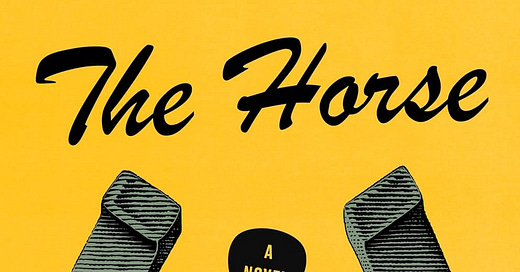I read 56 books in 2024. That’s a high number for me. I completed 45 in 2023, and only 28 in 2022. I would say I’m typically in the 30-40 range.
The number depends, to a large extent, on the types of books I’m reading in a particular year. If I tackle several thick history tomes, the number goes down. Also, if I’m in serious research mode, I’ll spend considerable time reading parts of books that I don’t read all the way through and therefore can’t count as completed.
One big reason the number jumped up in 2024 is that I read a bunch of older detective and fantasy novels, many of which are short by today’s standards (150-200 pages). In this post, I’ll focus on the crime and literary novels I read.
Years ago, I became a fan of John D. MacDonald and read almost every novel he wrote. This year, I decided to try out his big rival with a similar name, Ross Macdonald, who wrote the Lew Archer detective novels from the 1950s through the 1970s. Macdonald’s milieu is California, and his characters occasionally venture to Las Vegas and Reno. This year I read Macdonald’s The Way Some People Die (1951), The Barbarous Coast (1956), The Doomsters (1958), The Galton Case (1959) and The Chill (1964). Macdonald’s prose goes down easy, and he keeps you guessing, which are good traits in a novel of crime and detection. But I would rate him slightly below John D. MacDonald.
In The Barbarous Coast, Macdonald says of Las Vegas: “This carney town was actually Los Angeles’s most farflung suburb.”
I read a few more contemporary crime novels this year as well, most notably Stephen King’s Holly (2024), Walter Mosley’s Every Man a King (2023) and Tod Goldberg’s Gangsters Don’t Die (2024). They were all worthwhile. The King novel featuring the recurring character Holly Gibney was solid but I actually liked his new short story collection, You Like It Darker, better. Goldberg’s novel completed an excellent trilogy about an Italian-American mobster disguised as a rabbi in Las Vegas. It sounds crazy but it works beautifully.
I did not neglect literary fiction, although it was not a focus this year. Books I read in this area included Richard Ford’s Be Mine (2024), Graham Greene’s The Quiet American (1956), Ford Madox Ford’s The Good Soldier (1915), Willy Vlautin’s The Horse (2024), Patrick deWitte’s The Librarianist (2023) and two by William Kennedy, Legs (1983) and Chango’s Beads and Two-Tone Shoes (2012). The Ford book completes his set of novels revolving around a character named Frank Bascombe, who pontificates on seemingly every aspect of life while nothing too momentous happens. I enjoyed all the previous Bascombe books more than this one, unfortunately.
I benefited from reading The Quiet American, widely regarded as a spy and war classic, but I’m not sure it has the same appeal in 2024 as it did 70 years ago. I was even less enamored with The Good Soldier. While I can understand how and why it fits into the literary pantheon, I was expecting much more. The novel felt weak-kneed, almost robotic. It seems to have left a lot on the table. Maybe that was intentional but it didn’t work for me.
Kennedy’s Legs is a classic in the organized crime genre, and he does a fine job of imagining the Prohibition-era life of New York gangster Jack “Legs” Diamond. My favorite line: “He advanced the cause of joyful corruption and vice.” Chango’s Beads is Kennedy’s most recent novel (and probably his last, although he’s still kicking at this writing). I really enjoyed the parts set in Cuba, including a couple of wonderful scenes involving Ernest Hemingway and one with Fidel Castro. The rest of the novel, set in his hometown of Albany, New York, didn’t thrill me as much.
The new Willy Vlautin novel is a fine piece of work, as usual, from Nevada’s greatest living writer. Set partly in rural central Nevada and in Reno (Willy’s hometown), it is, among other things, a wonderful meditation on songwriting, which Vlautin knows a little bit about. He also always writes accurately and insightfully about Nevada, which is appreciated. I highly recommend this under-the-radar book.
Another novel I really liked is deWitte’s The Librarianist. It’s a funny, oddly compelling and quietly powerful book. I don’t know if he wants to do so, but if deWitte decides to write a second novel about Bob Comet, I would be eager to read it.
I read one other literary novel this year, Dream City by Douglas Unger. My thoughts on that book are contained in a soon-to-be-published review in Alta magazine. Watch for it, and I’ll link to it when it comes out.
Next time I’ll survey the barrage of fantasy novels I read in 2024 (and explain why I read them), followed by an installment on nonfiction.



